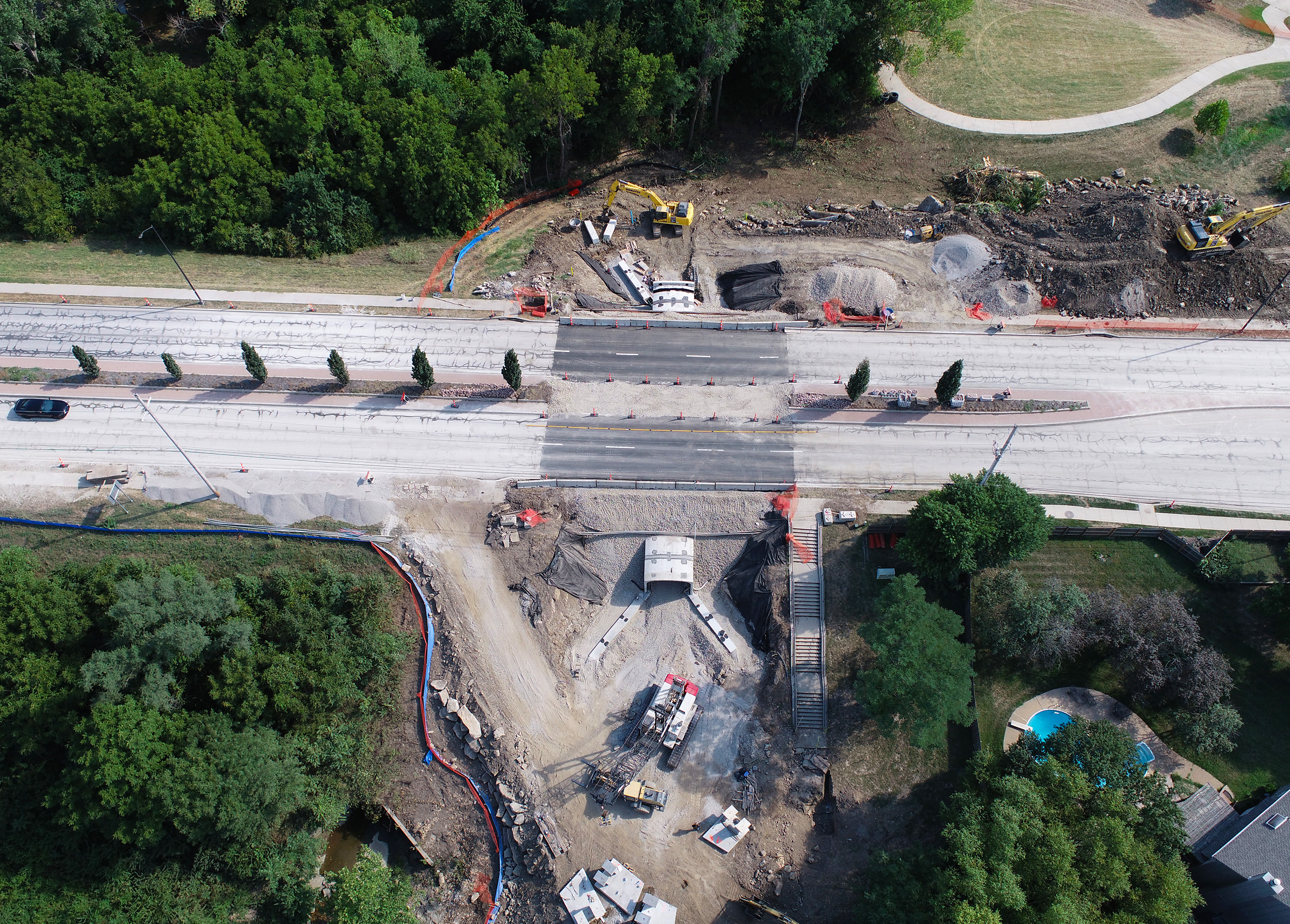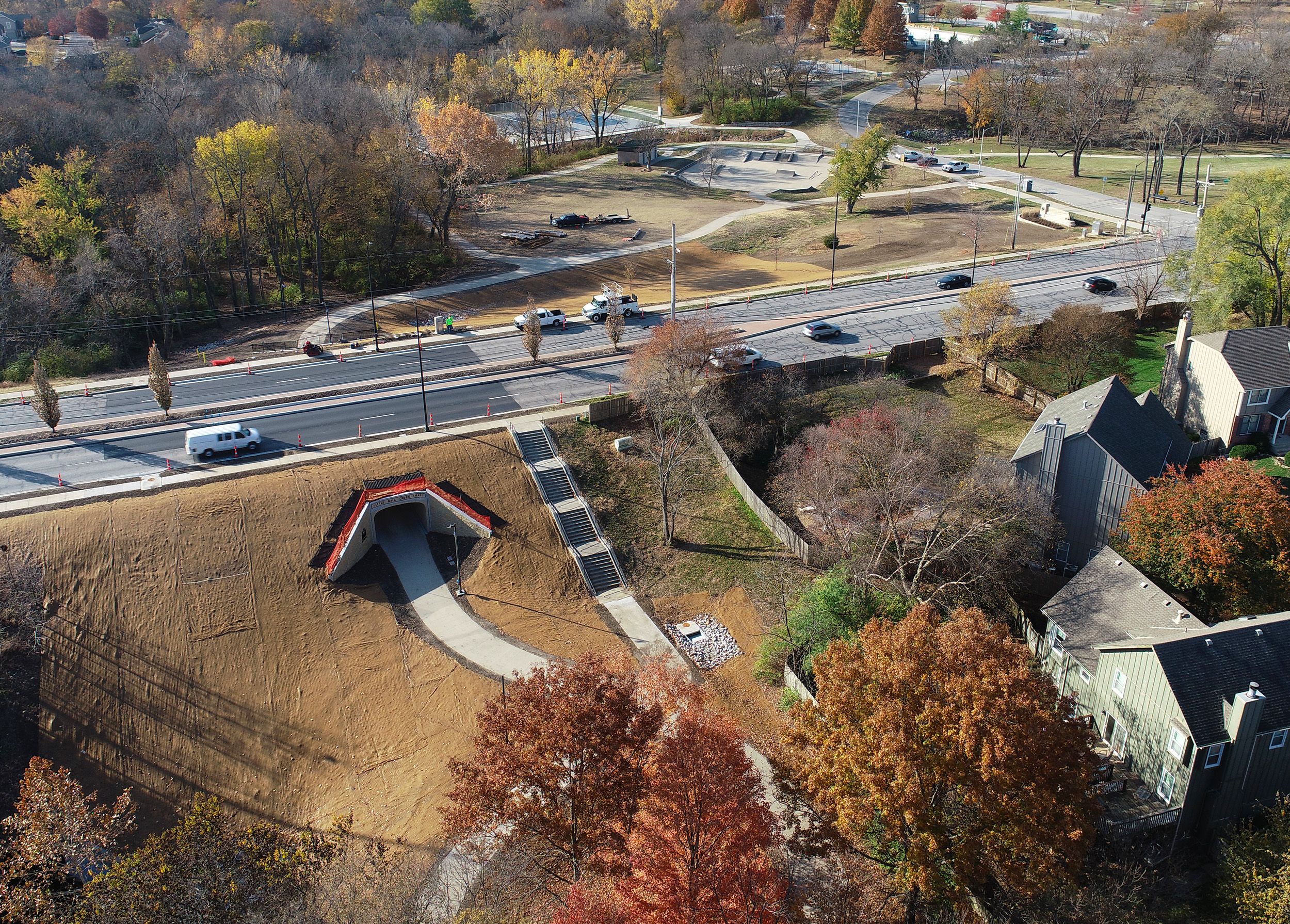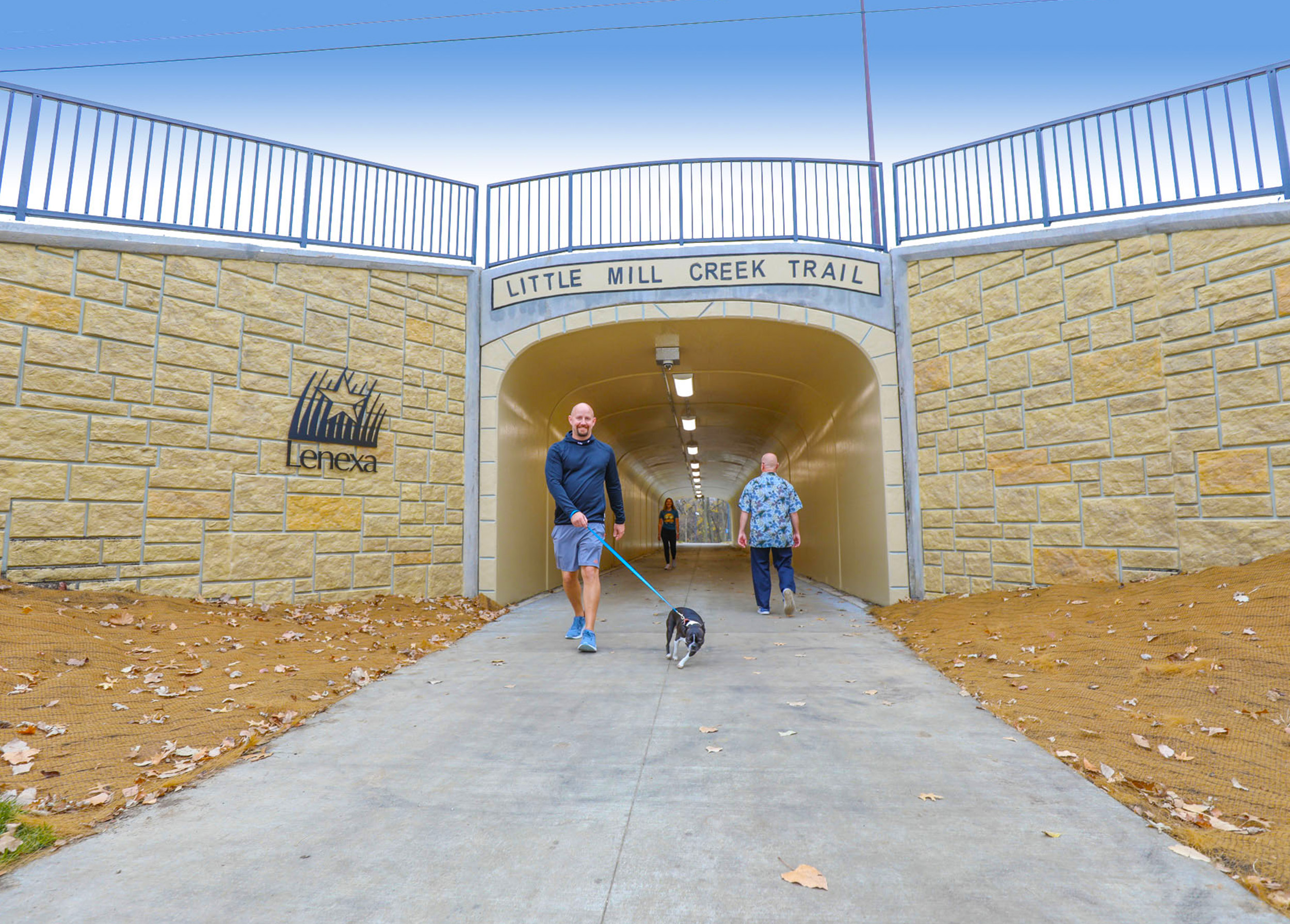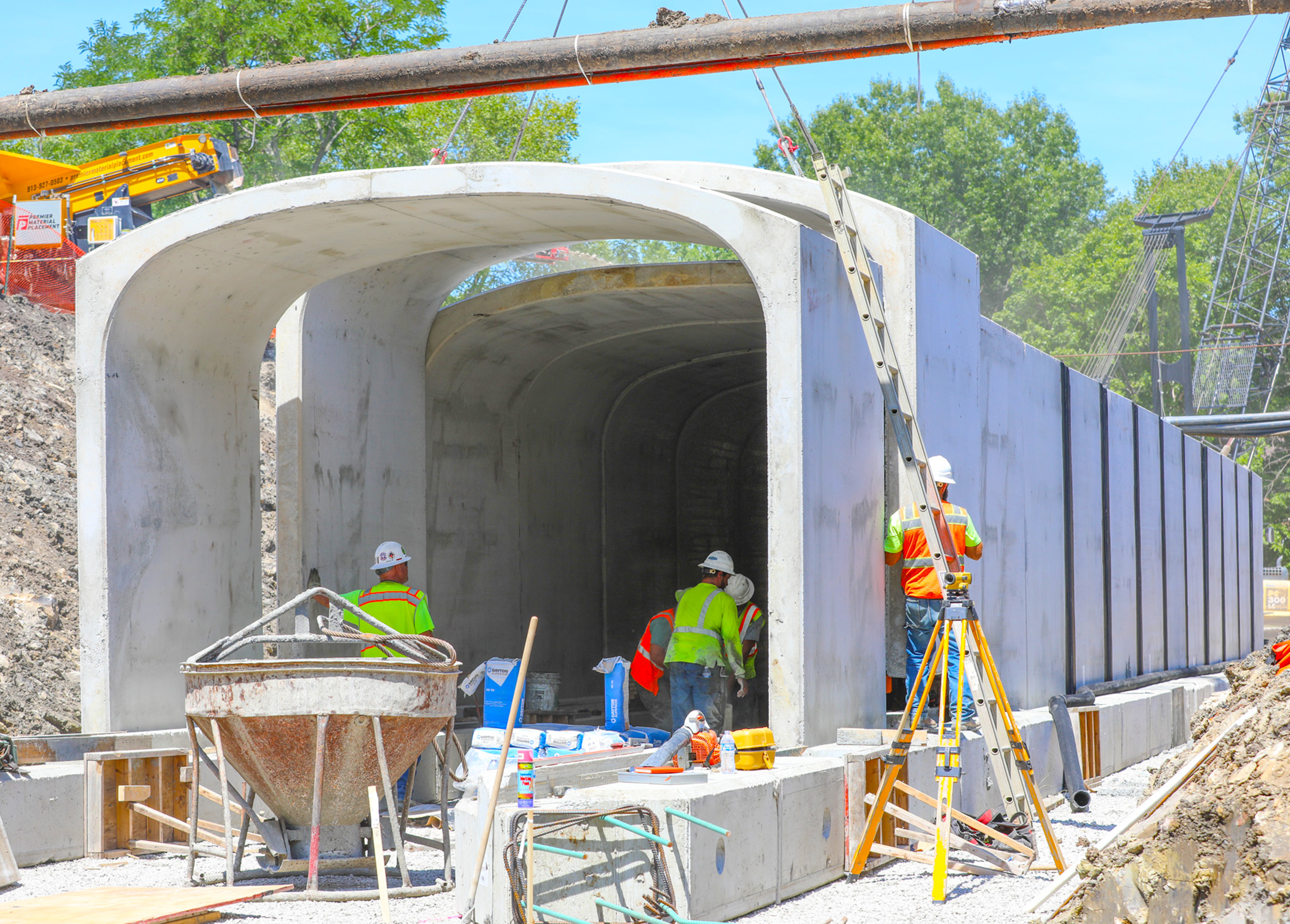Little Mill Creek Trail Crossing
For nearly 50 years, residents north of 87th Street Parkway and users of the Little Mill Creek Trail system were separated from the historic Sar-Ko-Par Trails Park by an at-grade signalized road crossing of one of the busiest streets in Lenexa, KS. Trail users were forced to traverse a series of steps and a circuitous path to the signal at Acuff Lane to cross and reach the park; in effect, cutting off the northeastern part of the city from access (except by vehicle) to one of the pride amenities of the city.
The City of Lenexa retained Wilson & Company to complete a trail tunneling study that evaluated tunneling versus open trenching under 87th Street Parkway. The open trenching approach was selected, and the final design included a 120-ft-long pre-cast arch tunnel (14-ft span x 11-ft 4-inch rise). The 310-ft-long, 10-ft-wide concrete trail connects the trail system on the north side of 87th Street Parkway with the trail and Sar-Ko-Par Park on the south. The project also included a 160-ft-long, 8-ft-wide secondary trail, special aesthetic enhancements, lighting, cameras, call pedestals, and storm sewer systems. The 36-inch water transmission main was relocated, and several other utilities were braced across the open-cut trench. A ROW acquisition was also completed on one property.
The existing trail parallels Little Mill Creek, a Clean Water Act 303(d) listed impaired waterbody. Due to this environmentally sensitive area, the design was shifted away from the creek, while also meandering the trail to preserve as much of the healthy tree canopy as possible. In addition, the tunnel was positioned outside of and higher than the 100-year stormwater surface elevation of the creek.
This helped to ensure no impact on the floodplain, safety for trail users during large rain events, and to alleviate additional trail and tunnel maintenance caused by flooding. A Storm Water Pollution Prevention Plan was also developed and carried out during construction.
The project was awarded funding through the Kansas Department of Transportation (KDOT) Cost Share Program and is subject to KDOT review. The project finally brings this much-needed connection to fruition.




